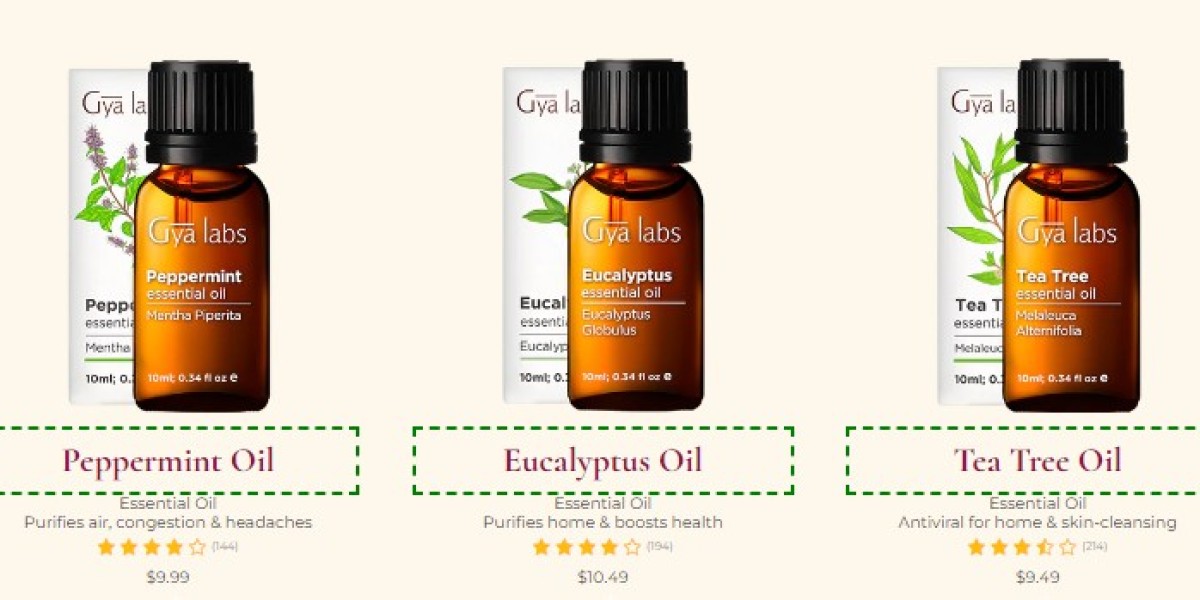In the realm of natural remedies, essential oils have emerged as powerful allies in promoting healing and well-being. Among their myriad benefits, essential oils have proven to be exceptionally effective in treating cuts and wounds. This guide aims to unravel the healing potential of essential oils for cuts, providing you with valuable insights into their properties, applications, and the science behind their efficacy.
Understanding Essential Oils:
Essential oils are concentrated extracts derived from plants, capturing the essence and aromatic compounds that contribute to the plant's therapeutic properties. With a history rooted in ancient healing practices, essential oils have gained modern recognition for their versatile applications, ranging from aromatherapy to skincare.
Key Essential Oils for Cuts:
Tea Tree Oil: Properties: Known for its powerful antiseptic and antimicrobial properties, tea tree oil is a go-to remedy for cuts and wounds. It helps cleanse the wound, preventing infection and promoting faster healing. Application: Dilute a few drops of tea tree oil with a carrier oil and apply it to the affected area using a clean cotton ball or swab.
Lavender Oil: Properties: Lavender oil is renowned for its soothing and calming properties. It possesses antimicrobial qualities that aid in preventing infections while promoting a relaxed healing environment. Application: Mix a few drops of lavender oil with a carrier oil and gently apply to the wound. Additionally, you can add a few drops to a warm compress for enhanced soothing effects.
Chamomile Oil: Properties: Chamomile oil boasts anti-inflammatory and analgesic properties, making it an excellent choice for reducing pain and inflammation associated with cuts and wounds. Application: Dilute chamomile oil with a carrier oil and apply it topically to the affected area. This oil is gentle and suitable for sensitive skin.
Frankincense Oil: Properties: Frankincense oil is known for its regenerative properties, promoting skin cell renewal and minimizing scarring. It also possesses antiseptic qualities that aid in preventing infections. Application: Mix frankincense oil with a carrier oil and apply it to the cut or wound. Regular use can contribute to smoother and less noticeable scars.
Helichrysum Oil: Properties: Helichrysum oil is celebrated for its ability to promote tissue regeneration, making it a valuable asset in the healing process. It also has anti-inflammatory and analgesic effects. Application: Dilute helichrysum oil with a carrier oil and apply it directly to the wound. This oil is particularly effective for bruises and cuts with broken skin.
Application Techniques:
Topical Application: Gently clean the cut or wound with mild soap and water. Once dry, apply the diluted essential oil using a clean cotton ball or swab. Ensure that the oil is well-diluted to avoid irritation, especially for individuals with sensitive skin.
Compress: Add a few drops of essential oil to a bowl of warm water. Dip a clean cloth or compress into the mixture and apply it to the affected area. This method enhances the absorption of the oil while providing additional soothing benefits.
Blends: Experiment with creating blends of essential oils to enhance their synergistic effects. Combining oils with complementary properties can create a potent mixture for optimal healing.
Safety Precautions:
While essential oils offer a natural and effective approach to healing cuts and wounds, it's crucial to observe safety precautions:
- Always dilute essential oils with a carrier oil before applying to the skin.
- Perform a patch test to ensure you don't have an adverse reaction to the essential oil.
- Consult with a healthcare professional, especially if you have underlying health conditions or are pregnant.
Conclusion:
In harnessing the healing power of essential oils for cuts and wounds, nature provides us with a bountiful array of remedies. From the antiseptic prowess of tea tree oil to the regenerative qualities of frankincense, incorporating these essential oils into your first aid kit can revolutionize your approach to wound care. Remember to approach essential oils with respect, follow proper dilution guidelines, and enjoy the holistic benefits of these natural healers in your journey toward optimal well-being.







